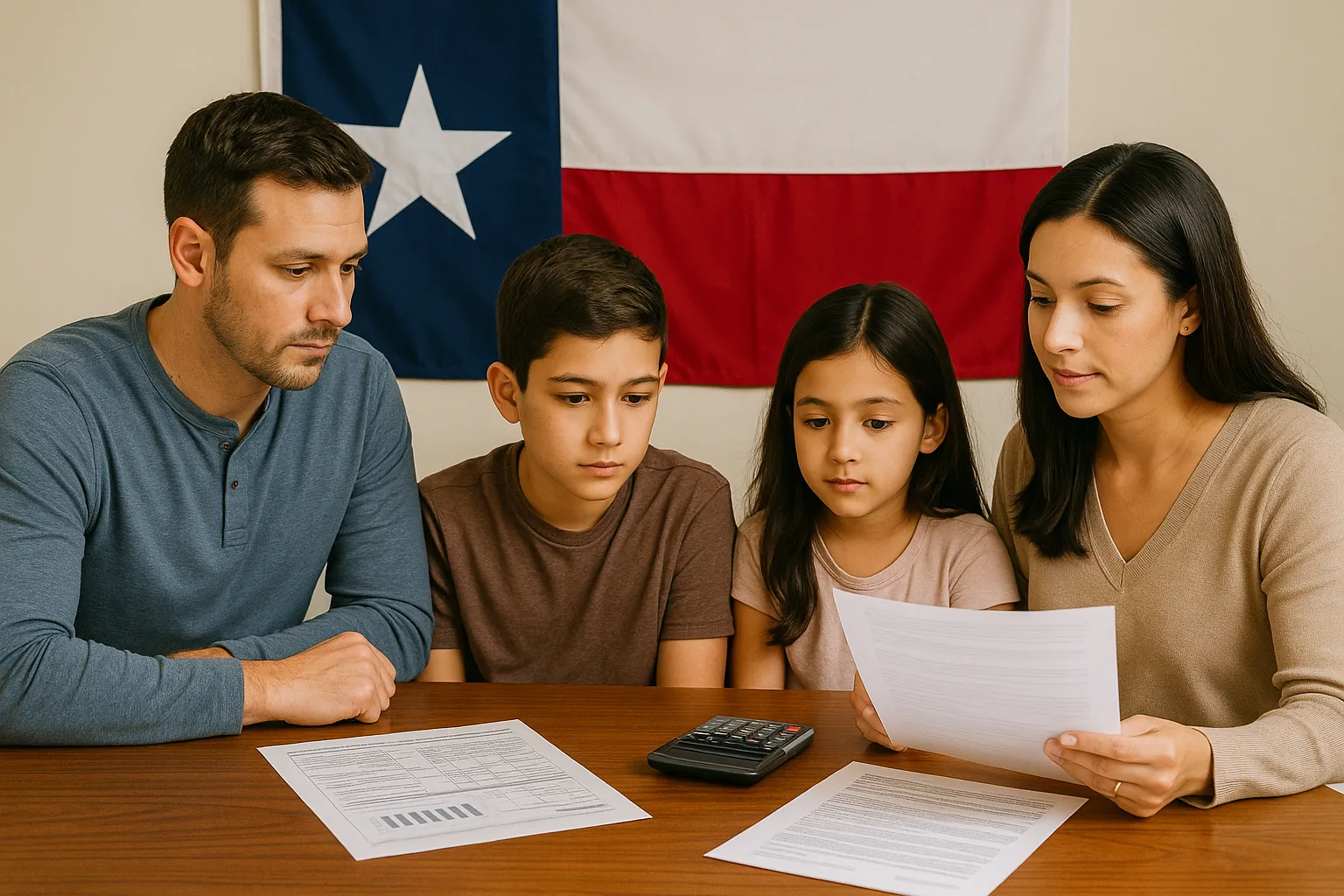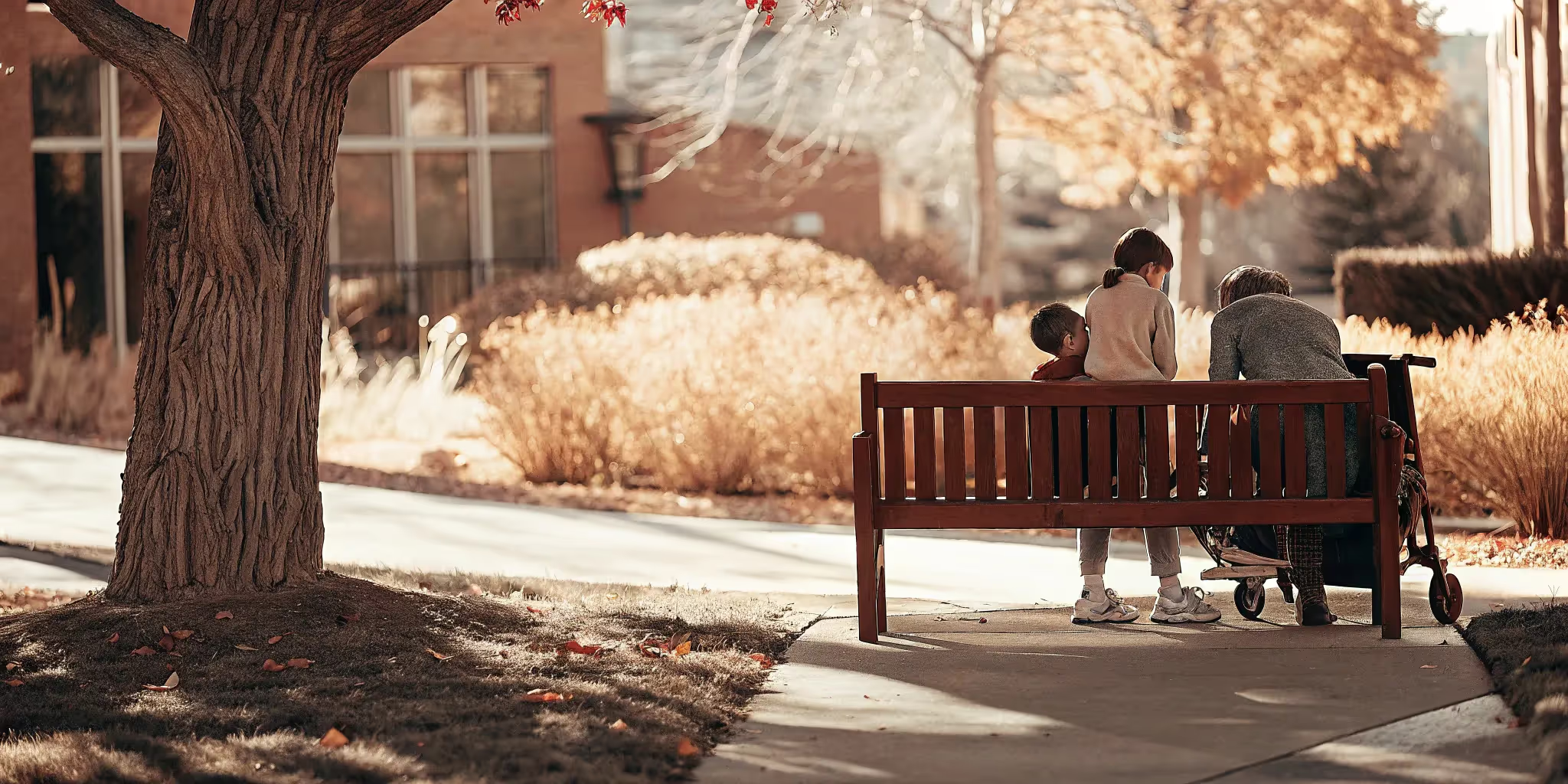Autism Resources Laredo TX: Your Family Guide

Effective therapy doesn't happen in a vacuum. A child’s progress is deeply connected to their family’s well-being and their community’s support. For practitioners working with clients in Laredo, understanding the local support system is key to providing holistic care. Families often face unique challenges in the area, making local non-profits and parent groups absolutely essential. This guide serves as a clear and simple directory to the most impactful autism resources in Laredo, Texas. It’s a tool for you to help bridge the gap between clinical services and community connection, ensuring the families you work with have access to the full spectrum of support available to them.
Key Takeaways
- Connect with Laredo's Local Network First: Your most valuable resource is the local community. Groups like LEAF and F.F.A.S.A.A. offer direct access to peer support, community events, and firsthand knowledge of Laredo-specific services, providing a strong foundation for your family.
- Organize Your Approach with a Simple Plan: Avoid feeling overwhelmed by breaking down the process into manageable steps. Start by confirming eligibility for programs, gathering essential documents like diagnostic reports, and identifying key healthcare and educational contacts to build your child's care team.
- Supplement Local Help with Broader Resources: While local support is crucial, remember to look at statewide programs like Texas 2-1-1 and national organizations. These broader networks can offer additional financial aid, specialized information, and advocacy tools that complement Laredo's offerings.
Your Guide to Autism Support in Laredo
Finding the right support for a child with autism can feel like a huge undertaking, but you don’t have to figure it all out on your own. Laredo has a dedicated community of families and professionals who are passionate about creating a supportive environment. Connecting with local organizations is one of the best first steps you can take. These groups offer a wealth of shared knowledge, practical resources, and, most importantly, a network of people who truly understand the journey. Whether you’re looking for educational resources, advocacy support, or just a chance to connect with other families, Laredo’s local network is ready to help you and your family thrive.
The Power of a Local Network
In Laredo, community is everything. Local non-profits are the backbone of the autism support system, created by and for families in Webb County. The Laredo Educational Autism Foundation (LEAF) focuses on advocacy and educating the wider community to build a more inclusive environment for individuals with autism. Another key organization, Families for Autism Support and Awareness (F.F.A.S.A.A.), is dedicated to directly helping families with their day-to-day lives. These groups provide a crucial sense of belonging and a platform for parents and caregivers to connect with others who share similar experiences. They are your go-to resources for finding local services and building a strong support system right in your hometown.
Common Hurdles for Laredo Families
While Laredo has a strong local support system, families can still face some unique challenges. One significant hurdle is that some state-level services and resources aren't always available in the area, which can limit access for families who need specialized care. This makes local organizations even more vital. To bridge these gaps, groups like F.F.A.S.A.A. host monthly support meetings where families can share practical advice, discuss strategies for advocating for their children's needs, and learn from one another’s experiences. These gatherings are more than just meetings; they are a lifeline for parents seeking guidance and a powerful reminder that they are part of a resilient and resourceful community.
Key Autism Support Organizations in Laredo
Finding the right support system can make all the difference, and Laredo has several fantastic organizations dedicated to helping families and individuals on their autism journey. These groups provide a mix of advocacy, education, and community, creating a strong local network. Whether you’re looking for information, a listening ear, or a way to get involved, these organizations are a great place to start. They form the backbone of Laredo’s autism community, offering resources and a sense of belonging for families, individuals, and the professionals who support them.
Laredo Educational Autism Foundation (LEAF)
The Laredo Educational Autism Foundation (LEAF) is a powerful voice for the autism community in Laredo. Their work is all about action: speaking up for individuals with autism, improving public understanding of the condition, and providing genuine encouragement to families. LEAF is on a mission to educate the community and build a more inclusive environment for everyone. They are a crucial local advocate, working to ensure that the needs of individuals with autism are heard and met. Following their work is a great way to stay informed about local advocacy efforts and find opportunities to get involved in creating positive change right here in our city.
Families for Autism Support and Awareness (F.F.A.S.A.A.)
If you’re looking to connect with other parents who just get it, Families for Autism Support and Awareness (F.F.A.S.A.A.) is an invaluable resource. This group is centered on creating a strong, supportive community through ongoing education and awareness initiatives. They host monthly support meetings, which are a fantastic opportunity for families to come together, share their experiences, and exchange practical strategies for raising children with autism. The core mission of F.F.A.S.A.A. is to ensure no family feels isolated on their journey, fostering a network where parents can find both information and solidarity.
Autism Society of Texas - Laredo Chapter
As a local branch of a larger organization, the Autism Society of Texas - Laredo Chapter offers the best of both worlds: local understanding and access to a wide range of resources. This group serves individuals with autism, their families, and the professionals who work with them by providing information, services, and advocacy. A key benefit is their ability to connect Laredo families with state and national support networks, ensuring you have access to a comprehensive web of assistance. They are a go-to source for reliable information and can help you find the specific help you need, whether it’s local services or broader organizational support.
Explore Local Services and Programs
Beyond providing a general sense of community, Laredo’s autism organizations offer specific programs and services designed to address the daily needs of families. From monthly meetings to educational initiatives, these resources provide tangible support that can make a real difference. Tapping into these local programs is a great way to build a strong foundation for your family’s journey.
Monthly Support Group Meetings
Connecting with other parents who understand your experience is invaluable. Local groups like Families For Autism Support and Awareness organize monthly support meetings where you can do just that. These gatherings are a safe space to share your family’s wins and challenges, discuss effective strategies for raising a child with autism, and learn more about advocating for your child’s needs. It’s a chance to build relationships with other families in the community, share practical advice, and remind yourself that you aren’t alone on this path.
Advocacy and Education Programs
Creating a more inclusive community starts with awareness and education. The Laredo Educational Autism Foundation (LEAF) is at the forefront of this effort, working to educate the public about autism and advocate for the rights of individuals on the spectrum. Their programs empower families and individuals with the tools and confidence to speak up for their needs. By raising awareness throughout Laredo, LEAF helps foster a more understanding and supportive environment for everyone impacted by autism, ensuring that your child has a community that is ready to embrace them.
Family Support Services
Navigating the resources available for autism can sometimes feel overwhelming, but you don’t have to do it by yourself. Organizations like Families for Autism Support and Awareness are dedicated to building a strong, supportive network for families in Laredo. They provide a range of resources and services designed to help you find the information and assistance you need. Whether you’re looking for guidance on local services or simply need to connect with people who get it, these support services are there to ensure your family feels seen, heard, and supported.
Recreational Activities
All work and no play isn’t good for anyone! Local autism organizations understand the importance of fun and social connection. Many groups provide recreational activities that give families a chance to relax, play, and engage with the community in a low-pressure environment. These events are fantastic opportunities for children to practice social skills and for parents to connect with one another. Be sure to check the event calendars for local organizations to find fun outings, seasonal parties, and other activities that your whole family can enjoy together.
How to Access Support Services in Laredo
Finding the right support services can feel like a huge task, but you don’t have to figure it all out at once. The key is to approach it systematically, one step at a time. Think of it as creating a roadmap for your family. By breaking down the process into manageable steps—like checking eligibility, finding financial aid, and getting your documents in order—you can move forward with confidence. This approach helps reduce the overwhelm and ensures you’re prepared to connect with the resources that will make the biggest difference for your child and your family.
Check Eligibility Requirements
Before you dive into applications, the first step is to understand who qualifies for each service. Every program has specific criteria, which might include your child's age, diagnosis, family income, or where you live in Laredo. A great local resource for guidance is Families For Autism Support and Awareness, as they can help you understand the local landscape. I recommend starting a simple spreadsheet or notebook to track the requirements for each organization you’re interested in. This will save you a ton of time and help you focus your energy on the programs that are the best fit for your family’s needs.
Find Financial Assistance
The cost of services is a valid concern for many families, but there are resources available to help. A great place to start is your local Community Action Agency, a non-profit that often has access to state and federal funding. You can also explore national resources that provide guidance on financial autism support, including grants, waivers, and insurance advice. Don’t hesitate to ask organizations directly about payment options, sliding scales, or scholarships they may offer. Financial hurdles are common, and many groups are dedicated to helping families find a way to afford the care their child needs.
Gather Necessary Documents
Having your paperwork ready will make the application process much smoother. Most programs will ask for a standard set of documents, so it’s smart to gather them ahead of time. You’ll likely need a copy of your child’s diagnostic report, birth certificate, proof of Laredo residency (like a utility bill), and insurance cards. For children under three, you may need to connect with an Early Childhood Intervention (ECI) program, which has its own documentation requirements. Create a dedicated folder—either physical or digital—to keep all these files organized. When you’re ready to apply, you’ll have everything you need in one place.
Find Healthcare and Educational Resources
Figuring out the healthcare and educational systems can feel like a full-time job, but you don’t have to do it all alone. Laredo has dedicated organizations and state-level resources designed to connect you with the right specialists, school programs, and early intervention services. Knowing where to look is the first step. These resources can help you find the right diagnostic services, understand your child’s educational rights, and get support from day one. By tapping into these networks, you can build a strong foundation of care and advocacy for your child.
Locate Specialists and Diagnostic Services
Finding the right specialists for your child is a critical step. A great place to start is by connecting with local parent networks. Organizations like Families for Autism Support and Awareness are invaluable because they create a community for families raising children with autism right here in Laredo. They can share information and experiences with local specialists and diagnostic services, helping you find trusted professionals who can support your family’s specific needs. Tapping into a community that has already walked this path can provide both practical guidance and much-needed emotional support as you begin this process.
Learn About School District Programs
Understanding the resources available within Laredo’s school districts is key to advocating for your child's education. The Laredo Educational Autism Foundation (LEAF) is dedicated to educating the community about autism and the support systems in place at local schools. By promoting awareness and a deeper understanding of autism spectrum disorders, LEAF helps bridge the gap between families and educators. Following their work can help you stay informed about available programs and ensure your child has access to an appropriate and supportive learning environment where they can thrive.
Review Special Education Services
Getting clear on your child’s educational rights and the services they are entitled to can feel overwhelming. Thankfully, the Texas Special Education Information Center (SPEDTex) is available to provide answers and support. This statewide resource helps families understand the special education process. You can connect with them via phone, email, or live chat to ask questions about your rights, review available services, and get the information you need to be an effective advocate for your child in any educational setting. They are there to help you make sense of the system.
Consider Early Intervention Options
For children from birth to age three, early support can make a significant impact on their development. Texas provides robust Early Childhood Intervention (ECI) services to help families get the support they need as soon as possible. If you have concerns about your young child’s development, you can call the HHS Office of the Ombudsman at 877-787-8999 for assistance. You can also directly find your nearest ECI program to connect with local providers who can offer tailored services and guidance for your child and family during these crucial early years.
Build Your Support Network
Navigating the world of autism support can sometimes feel like a solitary journey, but it doesn’t have to be. Building a strong support network is one of the most impactful steps you can take for your child and for yourself. This network is more than just a list of contacts; it’s a community of people who understand your experiences, celebrate your victories, and offer a hand during challenges. It’s made up of other parents who just get it, professionals who can offer guidance, and community organizations dedicated to creating an inclusive environment for your family.
In Laredo, you have dedicated groups working to build this very community. Organizations like the Laredo Educational Autism Foundation (LEAF) and Families for Autism Support and Awareness (F.F.A.S.A.A.) exist to connect families with each other and with valuable resources. Tapping into this local network provides not only practical help but also the emotional reassurance that you are not alone. It’s about finding your people—a group that can offer advice on everything from local school programs to the best sensory-friendly spots in town. This web of support becomes a crucial foundation, helping your family thrive.
Join Parent Training Programs
Parent training programs are designed to empower you with practical knowledge and effective strategies to support your child’s development. These sessions go beyond simple advice, offering structured guidance on topics like communication techniques, behavior management, and the special education system. It’s a fantastic opportunity to learn directly from professionals and ask questions in a supportive setting. More than that, it’s a place to meet other parents who are learning right alongside you. Local organizations often host workshops and training series, providing ongoing education that helps you feel more confident and prepared as your child’s best advocate.
Find Respite Care Services
Caring for a child with autism is a rewarding but demanding role, and taking time for yourself is not a luxury—it’s essential for your well-being. Respite care provides short-term breaks for primary caregivers, giving you a chance to rest, recharge, and tend to your own needs. This can be for a few hours, a day, or even a weekend. Finding a provider you trust is key, and your local support network is the perfect place to get recommendations. Connecting with other families can lead you to experienced and compassionate caregivers who understand the unique needs of children with autism, ensuring your child is in a safe and supportive environment while you take a much-needed break.
Attend Community Events
Community events offer a wonderful way to connect with other families in a relaxed, fun, and accepting atmosphere. These gatherings are specifically designed to be sensory-friendly and judgment-free, allowing your child to be themselves while you connect with other parents. Organizations like Families for Autism Support and Awareness create a full calendar of activities, from holiday parties to summer events, that help build a true sense of community. These events are more than just a fun outing; they are an opportunity to build friendships, share experiences, and create lasting memories with families who understand your journey. It’s a chance for everyone in your family to feel a sense of belonging.
Connect with Other Families
There is incredible power in talking to someone who truly understands what you’re going through. Connecting with other families of children with autism provides a unique form of emotional support that can’t be found anywhere else. These connections often happen at monthly support meetings, where you can share challenges and celebrate successes in a safe and confidential space. Groups like the Laredo Educational Autism Foundation and F.F.A.S.A.A. facilitate these connections, helping to reduce feelings of isolation. These friendships often extend beyond scheduled meetings, growing into a personal support system you can rely on for advice, encouragement, and simple understanding on any given day.
Look Beyond Laredo for More Support
While Laredo has a strong and growing network of local support, sometimes the right resource might be just outside the city limits or even available nationwide. Expanding your search can connect you with specialized programs, broader communities, and additional funding opportunities. Think of these as powerful additions to your local toolkit, offering another layer of support for the families you work with. Tapping into state and national networks ensures you have access to the widest possible range of information and assistance, helping you provide the most comprehensive guidance.
Texas State Programs
One of the most direct ways to find statewide help is through Texas's 2-1-1 service. It’s a fantastic starting point for connecting families with a huge variety of programs, not just for autism but for many related needs. By simply calling 2-1-1 or visiting the 211 Texas website, you can get information on everything from healthcare services and financial aid to educational support. This service acts as a central hub, simplifying the search process and directing families to vetted, relevant resources across the state. It’s an invaluable tool for finding assistance that might not have a physical office in Laredo but serves the entire region.
National Organizations
Looking at the national level opens up a world of resources, research, and advocacy. Organizations like the Autistic Self Advocacy Network (ASAN) are run by and for autistic individuals, offering powerful insights and focusing on disability rights. Another key player is the Autism Society of America (ASA), which provides extensive educational materials, builds community through local chapters, and advocates for supportive policies. These groups offer well-researched information, webinars, and support networks that can be incredibly helpful for both families and practitioners looking for a broader perspective and a community that spans the country.
Online Communities
The internet can feel like a maze of information, but it’s also home to some incredibly supportive communities. When you find the right ones, they can be a lifeline. Instead of just Googling, guide families toward curated lists of recommended websites from trusted organizations. These lists often point to blogs, forums, and resource hubs that other parents have found genuinely helpful. They can provide practical daily living tips, share personal stories that build connection, and offer a sense of solidarity. Finding a reliable online community means families don't have to go through their journey alone and can learn from the experiences of others.
Financial Resources
The cost of care and support services can be a significant concern for families. A great place to start looking for assistance is with local Community Action Agencies. These non-profit organizations are located in almost every community across the country and are tasked with distributing state and federal funding to families in need. They can help with a wide range of financial challenges, connecting families to grants, aid programs, and other forms of financial help for autism. By directing a family to their local agency, you can help them find tangible support that eases financial burdens and makes it easier to access necessary services.
Create Your Family's Action Plan
Receiving an autism diagnosis for your child can feel like you've been handed a map to a new country with no compass. It's a lot to process, but you don't have to figure it all out at once. Creating a family action plan is about taking small, manageable steps to build a supportive environment for your child and your entire family. Think of it as your personalized roadmap. It’s about identifying your core support system, learning how to work with professionals, finding your voice as an advocate, and knowing what to do first. This plan will evolve as your child grows and your family’s needs change, but starting with a clear framework can make the path forward feel much less overwhelming and a lot more hopeful.
Assemble Your Care Team
You’ve heard the phrase “it takes a village,” and that’s especially true here. Your care team is more than just doctors and therapists; it’s your entire support network. This includes family, friends, and other parents who understand what you’re going through. Organizations like Families for Autism Support and Awareness in Laredo are dedicated to building this kind of community. Connecting with other families provides a space to share experiences and advice, reminding you that you aren't alone. This peer support is a critical piece of your foundation, offering emotional strength and practical wisdom as you move forward.
Partner with Healthcare Providers
Your relationship with healthcare providers should be a partnership. You are the expert on your child, and they bring the clinical expertise. Open communication is key. To build this partnership, attend local support meetings where you can learn from the experiences of other families. These gatherings are often a place to discuss helpful strategies for raising a child with autism and learn how to effectively speak up for your child's needs in medical and educational settings. This shared knowledge empowers you to ask the right questions and collaborate with professionals to create the best possible care plan for your child.
Advocate for Your Child
Becoming your child’s advocate is one of the most powerful roles you will take on. Advocacy means ensuring your child has access to the resources and support they need to thrive. It can feel intimidating at first, but local organizations are there to help you find your voice. The Laredo Educational Autism Foundation (LEAF) focuses on speaking up for people with autism, raising community awareness, and offering encouragement. Engaging with groups like LEAF can give you the tools and confidence to advocate effectively in schools, with healthcare providers, and within the community.
Take the First Step
The sheer amount of information can be paralyzing, but you don't have to do everything at once. The most important thing is to simply start. Taking the first step can be as small as visiting a website to see a calendar of events or learning about one local resource. For example, the Families for Autism Support and Awareness website is a great starting point to see what’s happening in the Laredo community. Pick one thing to do this week. Maybe it’s making a phone call, attending a virtual meeting, or just reading one article. Each small action builds momentum and makes the journey feel more manageable.
Related Articles
- How to Choose Autism Providers in Laredo, Texas - Alpaca Health
- Best Autism Providers in Corpus Christi, Texas
- Top Autism Providers in Dallas, Texas: A Family Guide
- Guide to Autism Resources in Dallas, Texas
- Your Guide to Autism Resources in Houston, Texas
Frequently Asked Questions
I’m a parent who just received my child’s diagnosis and I feel completely overwhelmed. What is the very first thing I should do? First, take a deep breath. It’s completely normal to feel this way, and the most important thing is to not try to do everything at once. A great first step is to simply connect with one local group. Reaching out to an organization likeFamilies for Autism Support and Awareness(F.F.A.S.A.A.) to ask about their next monthly meeting can be a low-pressure way to meet other parents who have been where you are now. Just making that one connection can make the path forward feel much less lonely.
What’s the main difference between organizations like LEAF and F.F.A.S.A.A.? It’s helpful to think of them as having different, but complementary, missions. The Laredo Educational Autism Foundation (LEAF) focuses heavily on community-wide advocacy and education, working to create a more inclusive Laredo for everyone. Families for Autism Support and Awareness (F.F.A.S.A.A.) is more centered on direct peer-to-peer connection, creating a strong support system for families through meetings and community events. Both are fantastic resources, and many families find value in connecting with each.
My family is concerned about the cost of services. Where should we start looking for financial help? This is a very common and valid concern, and you are not alone in figuring this out. A great starting point is to contact your local Community Action Agency, as they often manage state and federal funding to help families with various needs. It’s also a good idea to ask the service providers and organizations you connect with directly if they offer sliding scale fees, payment plans, or scholarships. Many groups are committed to making their services accessible and can point you toward the right financial resources.
Are the support groups and community events mentioned only for families with newly diagnosed or young children? Not at all. While many families join when their children are young, these support networks are valuable at every stage of the journey. The challenges and celebrations of raising a teenager or young adult on the spectrum are different, but the need for community remains just as strong. These groups welcome families with children of all ages, creating a space where parents can share wisdom and find support relevant to their current experiences.
As a BCBA, how can I use this information to best support the families I work with in Laredo? Your role is crucial, and you can be a key bridge to community support. You can use this guide as a resource to share with families, helping them see that a strong support system exists outside of their clinical services. Encouraging them to attend a local support meeting or a community event can help reduce feelings of isolation and empower them as advocates. By connecting them with these local organizations, you help build a holistic support network that benefits the entire family.
High Quality, Local ABA
If you are ready to partner with a local BCBA and receive the highest quality of care, reach out today!













